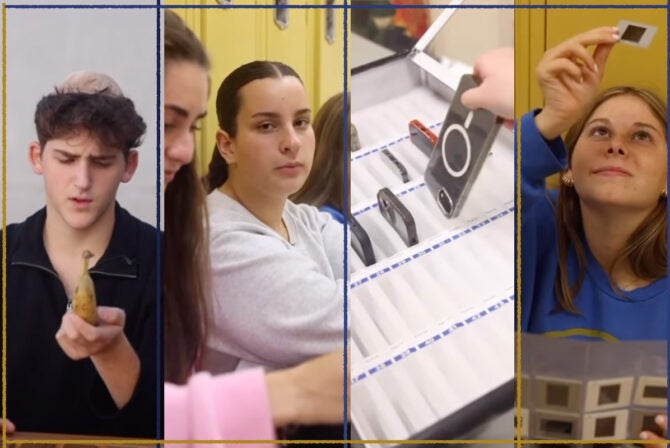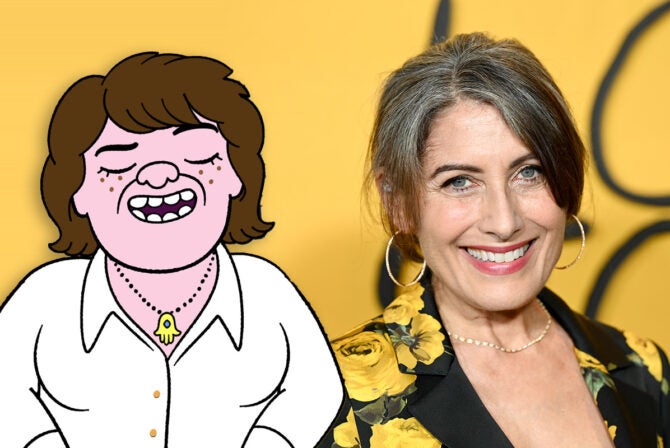I was totally blindsided (as usual) when my then 16-year-old son dropped what is arguably the most important question since, “Where do babies come from?” over dinner one night: “Mom, how did you know who to marry? I mean, how did you know that Dad was the right one for you?”
Oy! Can’t we just eat dinner in peace?
My natural instinct to brainwash his perception for the sole purpose of ensuring that I end up with a suitable daughter-in-law was mitigated by a rare moment of clarity, which highlighted the implications of my response. The idea of slowing down and taking a moment goes against my grain, but for my husband, it’s very natural. Especially in these situations, when he automatically employs his self-mute button and not so subtly gestures to me, “It’s all you.”
READ: There’s an 80% Chance My Marriage Will End in Divorce
Why is it all me? I whined inside my own head, still mildly traumatized from having to give the sex talk twice now (I always assumed that if you married a gynecologist, he’d have that part covered). I was acutely aware that by now both my teens were looking for a coherent answer on this premature topic, and I was nervous about the ramifications my opinions could have on their impressionable minds. Mostly I had no idea where to start, but saying, “You’ll just know,” seemed lame.
My husband and I have been together for 28 years, married for 23. We’ve had our ups and downs like all couples, and have shared extraordinary moments of sheer joy, grief, triumphs, and many, many laughs. Our sense of humor is a huge component of the glue that binds us, but is laughing enough? Equal measures of self-respect and respect for your partner are key components for feeling validated, but is that enough? What about support and encouragement of each other’s endeavors? Isn’t there also something to be said for being with someone who loves you for all your flaws and allows you to be exactly who you are? (There’s gotta be something huge said for that, considering my daily antics.) None of these components is possible without an underlying platform of unconditional trust. So maybe it’s a formula made up of a certain combination of factors?
Most of all I wanted to tell my kids that love alone is not enough. I know this is not a very romantic notion—but presumably most of us were in love, if nothing else, on our wedding day, yet so many marriages do not survive. I think of the “being in love” part as the springboard, but as with any good piece of equipment, it must be regularly maintained. (Get your minds out of the gutter. I meant emotionally. OK, I meant the other stuff, too.)
READ: How to Readjust Your Marriage
Why is it that when we hear unsettling news of another impending divorce, we are often not surprised? If in retrospect we are not as shocked as we should be that a relationship has fallen apart, what is it about the relationship that clued us in to its likely demise?
Maybe there is something to be said for Monday morning quarterbacking when it comes to this topic. Certain behaviors have foreseeable consequences. If you have doubts about your future spouse, should you proceed? How serious must the doubts be to call it quits? I decided that honesty is the best policy and gave my kids the lecture they’ve heard so many times about foreseeable consequences—this time with a romantic twist.
We can’t predict the future, and luck plays a role to a certain degree. But so many times in life, an honest risk-benefit analysis coupled with some good old-fashioned intuition is key. And here’s a reality check: Your future spouse is not going to really change who she is for you. Your partner may change in small ways by making a super-human effort to pick up his socks, but in the grand scheme of life, each partner must decide what’s really important. So fall in love, be realistic, and be honest with yourself. Nothing is perfect, but it can still be wonderful.
READ: Dear Gefilte: I’m Trapped in a Sexless Marriage
Ultimately I came clean with my kids: There is NO formula. Decide what’s important to you through a lot of self-reflection, trust your gut, and live up to your own standards. People will show you who they are—believe them and show them how to treat you. My son nodded and seemed satisfied with my lecture. Maybe I overwhelmed him with my barrage of advice (I’m sure it wasn’t the first time).
And just before the conversation ended, my then 12-year-old daughter added, “Don’t worry. Just bring your girlfriends home and I will evaluate for you.”







